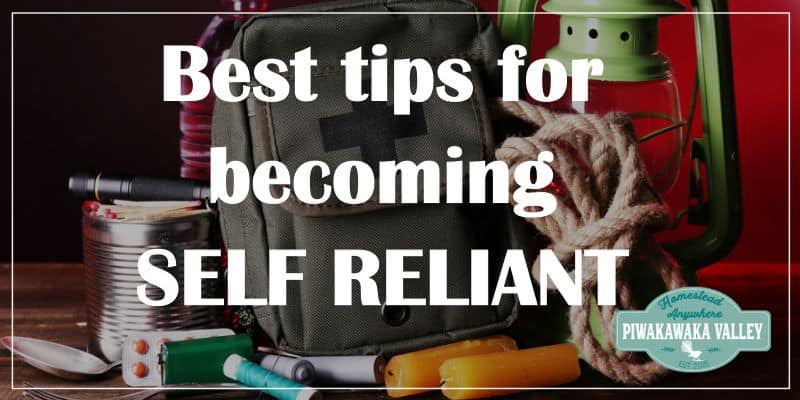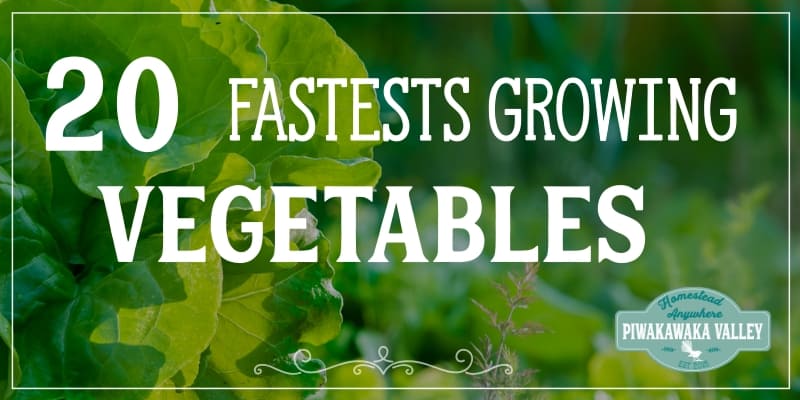50 ways you can Save Money and the Planet
This post was most recently updated on April 12th, 2023
Our planet is a limited resource. We only have one, and we have to share it. Saving the planet does not have to cost you lots of money however! There are some very frugal things that you can do that are also eco friendly and will help to save the planet!
Please read: This information is provided for educational purposes only and is not intended to treat, diagnose or prevent any disease. We encourage you to make your own health care decisions in partnership with a qualified health care professional.
This post contains affiliate links, this means at no extra cost to you, we make a commission from sales. Please read
our Disclosure Statement
In our house we try to be as green as we can be, but there are things that just cost too much money for us to take the greener choice, so sometimes money does have to come first because it is a very limited thing in our house at the moment!
Your life can change in under a year, ordinary folks can have a truly extraordinary impact, while living a life that feels aligned to you. AND you can get it to pay for itself so you don’t need to wait 10 years of working a day job to get there.
50 ways you can Save Money and the Planet
Below are some ways that you can save your budget while feeling good that you are also playing a part in saving our planet.
1. Use cold water for washing clothes
If every household in the USA switched from a hot to a warm cycle, it could save the equivalent of 100,000 barrels of oil per day in energy costs. Also avoid washing half loads if you can, they use nearly as much power as a full load!
RELATED: Make your own laundry powder
2. Use cloth napkins
Paper napkins from restaurants (and my mother in laws house) contribute billions of pounds of rubbish to landfills. Cloth napkins are cheap, and you can wash and reuse them many many many times before retiring them to use them as rags. If you grab cotton ones you can then compost them when you are finished with them. (I like these ones)
3. Use scrap paper
American business waste 21 million tonnes of paper per year! Ideally, try to have your business and home as paperless as possible. When it is absolutely necessary, make sure you use both sides of the page and if there is space, use it for scrap paper too before sending it to be recycled or adding it to your compost.
RELATED: How to compost for beginners
4. Don’t throw out your newspapers
Newspapers are SO handy around the home. Perfect for putting under mulch or starting a fire, or even to make your own fire bricks with. If you decide you don’t need your newspapers pop them in the recycling rather than the trash!
RELATED: How to light a fire without newspapers
5. Wrap gifts in fabric
Gift wrap is one of those things that costs a fair amount and we only use it once. Try reusing pillow cases, sheets or other fabric to wrap with instead. Or do what my brother in law does and grab some wall paper from the thrift store and use it instead.
6. Use LED lightbulbs
Energy efficient LED lightbulbs are a simple way to reduce the amount of power you use. If every house in the USA replaced just two light bulbs with LED ones, it would reduce pollution by the same amount as removing one million cars from the road! They do cost a little more to buy, but the savings down the road vastly outweigh the up front cost.
7. Turn off electronics overnight
If you turn your computer, TV and other electronics off every night, again you will reduce the power you use and you will get those savings right in your own pocket.
8. Skip the Pre-Rinse
If you can’t live without your dishwasher (like me!), then at least cut out the pre-rinse. Most modern machines include a pre-rinse in their normal program, so you aren’t really gaining anything by rinsing by hand.
9. Skip the Pre-Heat
Unless it’s absolutely essential, for example if you’re making bread, cookies or a cake, you don’t need to pre-heat the oven!
10. Choose cloth diapers/nappies
Not only are cloth nappies cheaper over all (they can save you thousands over the life of a child) they use much less space in landfills and even when you consider all the washing and drying they are STILL much better than disposables.
11. Use a clothesline to dry clothes
There is nothing like the smell of sunshine on sun dried clothes. Clothes lines are not just for poor people in the slums. Do your clothes a favor and swap to drying them the old fashioned way.
12. Buy pasture raised meats
This is one of the few that will cost you a little more out of your pocket, but what you save on is the long term health costs down the road. Pasture raised beef and chicken actually reduce the carbon in the atmosphere and are much lower in the high inflammation omega 6 fatty acids and much higher in the anti-inflammatory omega 3 fatty acids.
RELATED: Why you should raise meat rabbits
13. Raise your own chickens
Chickens love to eat all your veggie scraps, the provide manure for the garden and give you the best eggs that money can buy for basically free.
14. Drink tap water
Around 90% of water bottles end up decomposing in landfills or floating in the ocean rather than being recycled. Buy a good quality metal drink bottle and a good filter and drink your tap water for FREEEEEE.
15. Swap baths for showers
Baths use approximately double the amount of water a shower uses. So as soon as you can, swap your kids to having showers, and do so yourself. This not only saves water, but it saves you money on heating the excess water too especially if you have a low flow head.
16. Turn off the tap when you are brushing your teeth
If everyone in your house turns the tap off while brushing can save five gallons of water per person per week. That adds up fast over the year!
17. Adopt a military shower style
Shortening your shower time buy just two minutes can save more than ten gallons of water. Hop in, get wet, turn off the shower and soap up, then flick it back on to rinse off.
18. Plant trees
Trees are good for the environment both the land and the air, it can shade your home and cut back your air con usage and it can even increase the value of your property. Try some yummy fruit trees (like apple, pear or plum) for the added benefits of fruit from it.
19. Start a veggie patch
While there may be some start up cost and effort involved, starting a garden is a great way to improve your food security, improve your families health, reduce the food miles on your food to almost zero as well as save a truck load of cold hard cash.
If you want help getting started – I hold your hand for a whole year here
20. Use cruise control in your car
If your car has a cruise control, then do use it! Using cruise control helps to improve your mileage at least by 15%, which will in the process save the environment and your wallet.
21. Try to always buy second hand
So many things can be sourced second hand. This saves you money and helps to reduce packaging materials.
RELATED: Tips on buying second hand
22. Buy local
Wherever possible, buy local produce and meat. This saves all the pollution incurred by transporting goods long distance and helps to support your local economy. It also helps you to buy in season, which in turn saves you cash!
23. Adjust your thermostat
Learn to put on a jersey and socks when you are cold rather than turning up the heating. Adjust your house to encourage through breezes and block the sun when it is hot. Where possible, set a timer so your heating/cooling doesn’t need to be on when you aren’t home.
24. Use a keep cup for coffees
Some coffee chains will even offer a discount for filling up your own cup rather than issuing a paper one. (I love this one.)
25. Batch out your car trips
Instead of doing each errand separately, make a plan and work out the most efficient route. This will save you time and will also reduce your fuel costs.
26. Turn off those lights!
Save energy and money by getting into the habit of switching off the lights when you leave the room. If you are up in the evening, reduce the lights down to just enough to feel safe. There is no point in have 9 bulbs in the living area on if a simple lamp in the corner would be enough while you watch TV.
27. Water by hand
Try to avoid using a hose or sprinkler system. Instead use a watering can to concentrate on the areas you need to specifically water.
28. Get metal picnic ware
Paper or plastic disposable plates are the classic use once and throw away item. Go for a non breakable stainless steel set, or pop to the second hand store and load up on cheap ceramic plates and mismatched knives and forks for super cheap!
29. Swap to a moon cup
This is mostly for the ladies of course, but menstrual cups have shown health benefits, with many women reporting less cramping and lighter periods as well as MASSIVE savings over the course of a lifetime. Here is our ultimate guide on them.
30. Swap your razor
Plastic disposable razor are useless and you generally only use them 1-3 times. We have swapped to these and find them amazing.
31. Swap your toothbrush
Plastic toothbrushes are so last year. Instead grab a bamboo one that you can then throw in to the compost or the fire at the end of it’s life!
32. Regularly maintain your cars
If your vehicle’s engine is running correctly, the filters are clean and the tyres correctly inflated, the vehicle will be more efficient on fuel. You can learn to change your own oil and filters, check on youtube!
33. Think about cycling
If you can, try to swap out some of your trips in your car for walking, busing or biking. They might take longer but they save your wallet AND they are the eco choice.
34. Work from home
Have you ever sat down and worked out just how much going to work is costing you in both time and additional money? All that commuting, lunches, coffees, dinners out, work clothes etc. If possible, get an arrangement in place with your employer where you can work from home some or all of the time. This saves gasoline, which will reduce air pollution and save you money. And it also means you can work in your pyjamas with no make-up and your hair in a pony if you want to!
RELATED: How to start your own blog
35. Block up unused fires
If you’re not using your fireplace at any given time, keep the damper closed or if you never plan on using it, get it sealed off.
36. Choose matches
The majority of lighters these days are disposable and made of plastic and filled with butane, neither of which are environmentally friendly. Choose matches instead, ideally the paper ones.
37. Get your firewood early
If you are buying your firewood (guide here) it is best to buy it green or semi green and store it. If you are cutting it yourself, getting this done early will mean your wood is more dry when it comes time to burn it, it will be more efficient and make less soot.
38. Keep your fire clean
Cleaning out your fire or wood stove and your chimney regularly not only burns more cleanly and more efficiently but you will reduce the risk of a chimney fire! If your roof isn’t too high (or you are crazy) you can clean your own chimney like we do with one of these.
39. Keep or rehome
Don’t throw away perfectly good things just because you’re sick of them, or no longer have use for them. Instead, donate them to a local charity shop, or list them on a free collection site online. Try to think of ways to repurpose items around your home. I turned an old stool frame in to a rabbit water system.
40. Don’t use plastic bags
Plastic carrier bags are not biodegradable, nor are they recyclable. Use old pillow cases, or grab some cotton carry bags instead. This will save you paying the 10-50c per bag at the store everytime you shop!
41. Buy at a bulk food store
Swap your plastic bags for glass jars and shop at a bulk food store for your dried goods. Often they are cheaper, and many give you a discount for bringing your own containers.
42. Look for open source software
On your computer, swapping to a linux based system (rather than windows) or just using some of the free (but awesome) software around can save you some real coin while supporting the smaller companies. Some of my favorites are Irfanview, Inkscape and Libra office (or Open office).
43. Learn to preserve food
Buying seasonal produce and then being able to preserve it for when they are out of season can save you a bunch of money. Personally, we can a lot of vegetables in our pressure canner and I have saved hundreds of dollars this year buying summer produce and canning soups for the winter.
RELATED: Pressure canning for beginners.
44. Barter
This is a skill that has been lost. Bartering is simply swapping something you have or can do for something someone else has or can do. It does not have to be like for like, but it is a lot more efficient than earning money and they paying someone else in cash to do something. Barter with friends and neighbours for tasks that need doing.
45. Learn to sew
While buying fabric and making your own clothes can no longer compete with cheap unethical clothing made in 3rd world countries, being able to fix and mend things when they rip and tear can save you buying a new item.
46. Use paper based cotton buds
You can buy cotton buds with a paper spindle or a plastic one. If 10% of US households used paper based ones, it would save over 150,000 gallons of gasoline per year.
47. Pay your bills online
Getting paper statements is slow and wasteful. Save the planet and make your job easier by signing up for automatic payments (you usually get a discount for this!) and getting rid of your paper statements.
48. Swap some of your plastic
Have a look here and here and see what you can replace in your house to save both money and reduce your plastic usage.
49. Use rechargeable batteries
The corrosive acid in throw away batteries is extremely damaging to soil when they end up in landfills. Although the recharging wall unit and batteries is initially an expense, long term, this will save you money.
50. Get others involved
Share this list with your friends and family – if each of them takes on board just one point, the effect could be HUGE.
Let’s work together to make the world a better place.






